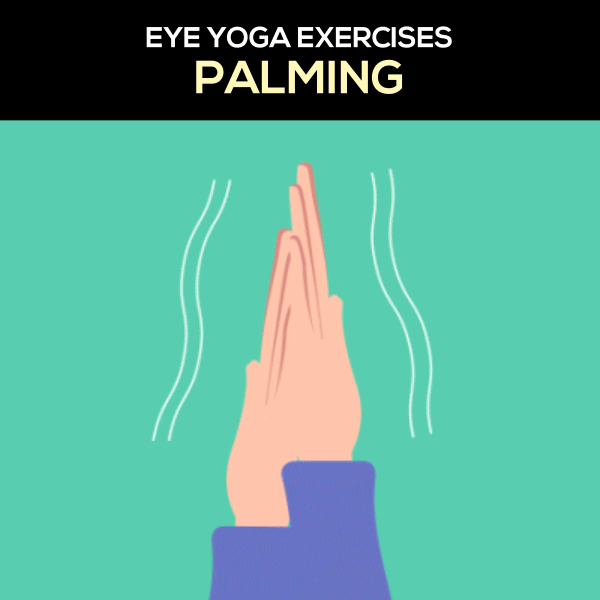
Yoga can be very beneficial for hypothyroidism. It's a journey that takes you through the self to reverse the negative effects caused by hypothyroidism. Many people are affected by thyroid disorders. They can have a significant impact on metabolism, growth and body temperature. Yoga can help you prevent or control symptoms of a thyroid disorder.
Yoga poses can be a great way of improving thyroid health. The basic fish posture and the downward facing dogs will stimulate your thyroid gland. This will promote overall good health. The cobra pose, which is a restorative and relaxing inversion, does not place pressure on the neck. To support your neck, you can use a cushion or blanket. Start by placing your right leg against the wall. Next, bend your knees and allow your hands to touch your neck. Once you feel comfortable with this pose, inhale deeply and continue to look.

The next posture is called the wheel pose. This is one of yoga's most popular poses for hypothyroidism. This pose helps improve blood flow to thyroid gland. You do this by bending your knees and keeping your flexed. In addition, this pose strengthens the abdominal muscles and calms the nervous system. While you are undergoing treatment for hypothyroidism, a seated bow pose is a good one to try.
An asana to treat hypothyroidism is the upward bow or Urdhva Dhanurasana. This pose can be helpful for back pain sufferers as it provides energy to the gland. You should not do this pose with straight arms if shenia is a concern. It is also not recommended for anyone with back pain. The pose should be performed with your elbows bent.
Hypothyroidism sufferers can do shoulderstand, which is a common yoga position. Inversions are said to increase blood flow to thyroid and improve thyroid efficiency. The thyroid's function is also improved by tucking your chin in to the chest. For shoulderstand you must lie on your back, flat on the ground. You will need to keep your hands by your side while you are pressed into the floor.

Camel pose is an effective position that increases blood circulation to the thyroid and the neck. The practitioner can hold the pose for up to one-minute. You will need to be able hold the pose with your knees straight, your chest up, and your head down. You should be able keep this pose for no less than three minutes.
FAQ
Are there any problems with me if my depression is persistent?
Depression is a common problem among teens. It's important to remember that depression is a common problem among teens.
This does not mean you are weak or crazy. Most people who are depressed aren't aware of it. Depression can be a medical condition.
There are different kinds of depression. Some people feel only sadness. Others experience other emotions. There are different degrees of severity.
Some people experience mild depression, while others have severe cases. It is important to remember that not all depression is bad. Sometimes, depression can be helpful in coping with stressful situations.
If you are feeling unmotivated, sad or tired, it is a good idea to see a doctor. Your doctor can diagnose and decide if you require treatment.
What should you do if your mental health is in crisis?
If you are suffering from any type of mental illness, it is important to seek professional help. It is possible that you have been subject to abuse or trauma in the past. This could have affected your perception of yourself.
A mental illness such as an eating disorder or addiction could also be present. These disorders can cause significant damage to your personal and professional life.
They shouldn't be dealt with on their own. Talk to someone who is familiar with the subject. A professional therapist can provide the support you need to overcome these challenges.
How can you improve your wellbeing?
Wellbeing refers to "the state or condition of being physically, mentally, spiritually, and socially well." Several factors affect our well-being, such as family, work, health, relationships, community, environment, education, finances, etc. Your first step to bettering your well-being, is to identify the areas in your life that require improvement. Then, work on changing these things.
These are five ways you can improve your well-being.
-
Exercise - It boosts endorphins, which can make us happier.
-
Sleep - Sleeping for more than six hours a night reduces anxiety and stress.
-
Nutrition – Eating healthy food (such as fruits or vegetables) will improve your mood.
-
Meditation – Meditation reduces stress and anxiety.
-
Socialization – Spending time with family and friends makes us feel happy.
What can I do to prevent mental health problems?
It is not easy to prevent mental health problems. Here are some things to keep in your mind.
-
Don't drink alcohol. Drinking alcohol can cause depression and affect your mood.
-
Avoid drugs. Avoid using drugs.
-
Get enough sleep. You can feel anxious or depressed if you don't get enough sleep.
-
Exercise regularly. Exercise releases endorphins which can make you happy.
-
Make sure you eat healthy foods. You can feel tired and unmotivated if you eat junk food.
-
Spend quality times with loved ones. Spending time together with someone you love can boost your mood.
-
Have fun. Enjoy life and try new things.
-
Take breaks from social media. Social media sites can make people feel lonely and isolated.
-
Take care of yourself. Treat yourself nicely, even if you aren't feeling great.
-
Ask for help. If you're having trouble coping, then ask for help. Talking to a family member or friend can be helpful.
-
It's okay to let go. Crying helps release tension and stress. It doesn’t mean something bad happened.
-
Keep busy. Find something you like to do.
-
Make sure you have good hygiene. A lack of hygiene can make you look unattractive and unclean.
-
Keep in touch. Staying connected with others can help you remain positive.
-
Learn how you can relax. Meditation and yoga can be helpful in reducing stress.
-
Find meaning and purpose in what you do. Find meaning in your hobby or work can bring you fulfillment.
-
You should be focusing on the moment. You won't worry about the future if you are focusing on the moment.
-
Set goals. Set goals will motivate you to achieve them.
-
Do something for yourself. Your self-esteem can be raised by doing something kind for yourself.
-
Practice gratitude. Gratitude can help to appreciate all the blessings in your life.
-
Volunteer. Volunteering is an enjoyable way of spending time and making a difference in this world.
-
Give back. Giving back to others can make you feel fulfilled.
-
Pay attention to warning signs. Do not hesitate to seek help if you notice changes in your behavior.
What is Positive Psychology? Why is it Important?
Positive psychology looks at what makes us feel better. Positive psychology's goal is to improve self-esteem, happiness, health, and wisdom.
There are two types if positive psychology: trait-positive psychology and process-positive psychology. Trait positive psychology studies the natural behavior of people. Positive psychology research explains how certain strategies can be used to reach specific goals.
Statistics
- Similarly, while there is some agreement about the boundaries of typical mental disorders 2, there is likely less agreement about those for positive mental health. (ncbi.nlm.nih.gov)
- According to the National Alliance of Mental Illness (NAMI), one in five Americans experiences mental health issues which translates to more than 40 million adults a year. (doctorondemand.com)
- More than 40 million adults in the United States have an anxiety disorder, but less than 37% of people seek mental health treatment for their symptoms. (talkspace.com)
- It means no drinking any alcoholic beverages and no taking any drugs that aren't 100% natural.
- Neuropsychiatric diseases are the leading cause of death and disability in the U.S., accounting for 18.7 percent of all years of potential lifespan loss and premature mortality.
External Links
How To
How to Care for Children with Autism
Autism spectrum disorder is a neurodevelopmental disorder that results in repetitive behaviors and impaired social communication. ASD affects 1 in 50 people worldwide. However, there are no treatments.
The first symptoms usually appear during infancy, around 18 months old. The most common signs include difficulty understanding others' emotions, lack of eye contact, problems with language development, and difficulties in learning new skills. These symptoms can lead sometimes to more serious behavioral issues like aggression, anxiety, depression and sleep disturbances.
This disease is not currently understood, but researchers believe genetics could play a role. Some studies suggest environmental factors like infections, fever, diet, stress, medications, vaccines, alcohol, and tobacco use could trigger the onset of ASD. Evidence also suggests that certain viruses, such as rubella or measles, can increase the likelihood of developing ASD later on in life.
While early intervention and diagnosis can make a difference in outcomes, many families still struggle with their child’s behaviour after school. The severity of the symptoms and how much support is needed will determine the treatment options. However, studies have shown that therapies that improve social interaction and reduce problem behaviors can make all the difference.